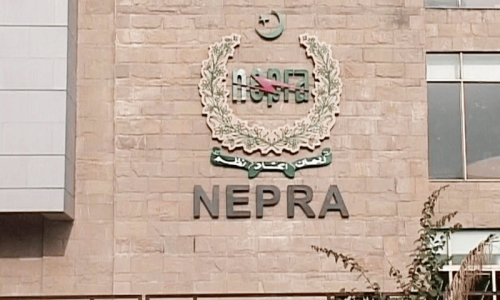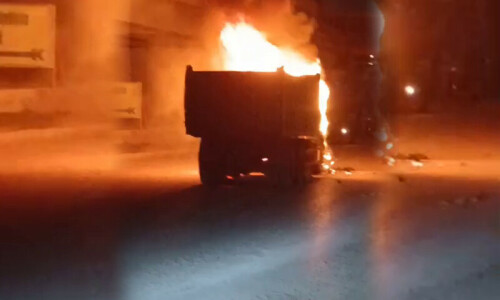WHEN South Asian leaders met at their first summit in Dhaka in 1985 there were just two democracies among the seven-member states that formed Saarc at the time — Sri Lanka and India.
The remaining five leaders comprised two military usurpers, including the host, representatives of two absolute monarchies, and an interloper who passed for a permanent head of a picturesque atoll.
You would have thought that the two representative states flaunting names such as Dudley Senanayake and Jawaharlal Nehru among their founders would have a natural moral edge over the hoi polloi dictators and autocrats in the neighbourhood who abused and mistreated their people at will.
The bitter truth is that some of the most egregious human rights violations in South Asia have been committed and are still being perpetrated by the two ‘gold standard’ democracies.
There is nothing novel though about self-regarding democracies becoming susceptible to the malaise of blood lust. The United States, Britain and France are among the current vanguards of rights abuse at a global scale. The colonial global onslaught in the 18th century was directed from the mother of all parliaments in London.
Still, if there is anything worse than the pain they inflict on their own people — the more powerful democracies inflict it on others — it is their penchant for mutual collusion in the macabre ordeal they subject their quarries to.
A new documentary by Britain’s Channel 4 on the military pogroms carried out by the Sri Lankan rulers against the island’s minority Tamils has pitted India against its own conscience, depleted though it may be after the trials and tribulations it has wreaked in Manipur and Kashmir as well as on a growing number of hinterland regions.
The latest revelations from Sri Lanka focus on more blood-curdling abuse of the Tamil people. The fresh narrative is pegged on a “victory trophy” the soldiers captured in their racist enterprise that purported to target the Tamil Tiger rebels.
The victory insignia is the pictures of the 12-year-old son of Tiger chief Vellupillai Prabhakaran the soldiers took while he was in their custody looking frightened and nibbling at a cookie. The next shot is that of the boy’s bullet-riddled body.
As always, the Sri Lankan government was prompt to deny any wrongdoing as it described the pictures as fabrication. A right-wing Brahmin leader who claims to speak for India’s Tamils was against New Delhi’s intervention in the affair.
“Support for such adventurist resolutions will make India vulnerable to future resolutions on Kashmir and Manipur,” Subramaniam Swamy reasoned. He was referring to a rare US-backed resolution to be taken up soon against Sri Lanka at the UNHRC.
UN Human Rights Commissioner Navanethem Pillay on her part spoke bluntly when she accused the Sri Lankan government this week of “triumphalism” in the Tamil north, home of the vanquished Tamil Tiger insurgency. In a report published on Monday, she said that civilians in the area called the “Vanni” were not allowed to commemorate the memory of those killed in the war.
She would perhaps note a similarity in this with the weeklong military curfew slapped on Kashmir after the secret execution of Afzal Guru on Feb 9. The fear of people commemorating their tragedy is common among many states.
Guru’s family received a letter two days after his hanging to inform them officially of the decision to kill him. Why Guru was hanged ahead of others on the death row may never be known.
The waitlist included a Sikh separatist, who unlike the executed Kashmiri, has expressed pride in his killing of a Sikh chief minister of Punjab, a controversial Congress leader.
Again unlike Guru, the Sikh radical Balwant Singh Rajoana, wears his militant links as a badge of honour. He has dared India to hang him, though one hopes there is a sliver of sanity still left in Delhi and he is denied his passionate request to be martyred.
Let’s also hope that the Indian parliament doesn’t take up the proposal by Prime Minister Manmohan Singh to debate whether Guru’s body should be returned to his family. Let us not make his macabre death even more ghoulish by fighting over his body for that is unlikely to change the Kashmiri narrative of injustice under military occupation.
The blood lust is getting more pervasive among the younger citizens. A massive crowd of youngsters has been gathering in Dhaka’s Shahbagh square to demand the hanging of a Jamaat-i-Islami leader who evidently played a role in the army’s rape and plunder of Bangladesh when it was still part of Pakistan.
In India, bands of youth nudged by right-wing parties want rapists to be hanged. As the economies shrink the bloody chorus will get even louder.
In Sri Lanka’s Tamil north, museums and memorials commemorating the victors have sprung up across the province. These, in Ms Pillay’s words, “tend to use triumphalist images from which the local population feels a strong sense of alienation”.
Sri Lanka’s vehement denial of rights abuse is of a piece with all other South Asian countries, including Pakistan’s stance on Balochistan where the army has run riot for decades.
I happened to be the judge in a mock TV trial of former Indian army chief Gen V.K. Singh. Amid the orchestrated cheering for revenge against Pakistan, China and whoever else, a young Muslim boy asked why the Indian army was mistreating Kashmiris.
“Have faith in your army. There’s no such thing happening,” the young man was informed tersely amid louder applause. This is the danger we are all facing in South Asia — the pervasive blood lust, and the ghoulish applause.
The writer is Dawn’s correspondent in Delhi.









































